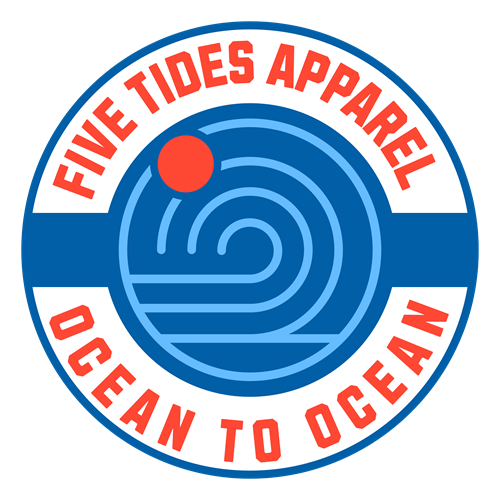
Protecting Fishermen: Why Respecting Their Territory and Supporting Local Seafood Matters
Share
Protecting Fishermen: Why Respecting Their Territory and Supporting Local Seafood Matters
The ocean has long been a vital resource for humanity, providing food, livelihoods, and cultural traditions that span generations. Among those who dedicate their lives to harvesting its bounty are fishermen—hardworking individuals often working under challenging conditions to supply fresh seafood to communities worldwide. Yet, despite their crucial role, fishermen face ongoing threats that undermine their sustainability and well-being. These threats include theft of their fishing territory, illegal traps, supplies, and damaging policies that hinder their ability to thrive.
Understanding the importance of protecting fishermen and their livelihood is essential not only for economic reasons but also for preserving coastal ecosystems and supporting local communities. By respecting their territory, avoiding theft of equipment and supplies, and choosing to buy local seafood, consumers can play a significant role in ensuring that fishing remains a sustainable and respectful profession.
Respecting Fishermen’s Territorial Rights
Fishermen invest considerable time and resources to secure fishing rights in specific areas, often passed down through generations or granted by regulatory authorities. These territories are vital for their livelihood, as well as for managing fish populations sustainably. When individuals or entities raid these spaces, whether through illegal fishing or trespassing, it undermines the fishermen’s efforts and can lead to overfishing and resource depletion.
Respect for these territories fosters sustainable practices and encourages cooperation rather than conflict. It also helps prevent disputes that can escalate into legal issues or violence, which threaten both the safety and stability of coastal communities. Supporting policies that recognize and enforce fishing rights ensures that fishermen can continue their work without undue interference.
The Impact of Theft and Illegal Activities
Stealing traps, supplies, or fish directly impacts fishermen. The loss of equipment such as nets, traps, or boats incurs financial costs that can cripple small-scale operations. When illegal fishing operations exploit open waters or conspiracy, they not only deprive fishermen of their income but also disturb delicate marine ecosystems.
Illegal practices often lead to overfishing and depletion of stocks, which threaten the long-term sustainability of fisheries. Moreover, theft and sabotage discourage responsible fishing and may force legitimate fishermen to leave their trades or relocate, further endangering local economies.
Ensuring Fair Support and Policy Changes
Fishermen should be supported through fair policies that address the rising costs of fuel, equipment, and regulatory compliance. Over the years, inflation and environmental regulations have increased expenses for fishermen, making it harder for them to sustain their livelihoods. Continuing to invest in these communities requires collaborative efforts—government support, fair pricing, and community initiatives—all aimed at helping fishermen withstand economic pressures.
Encouraging investment in local fisheries helps stabilize markets and promotes responsible harvesting. Additionally, policies that prohibit theft and illegal fishing practices strengthen the industry, ensuring the next generations can continue working the seas.
The Importance of Shop Local for Seafood
Consumers hold powerful influence through their purchasing choices. By opting to buy seafood from local fishermen and markets, consumers support small-scale harvesters who often adhere to sustainable practices. Local seafood ensures freshness, reduces carbon footprint, and bolsters regional economies.
Supporting local fisheries also promotes transparency and accountability. Unlike imported seafood, which may come from questionable sources or involve illegal practices, locally caught fish often have a traceable origin, ensuring consumers are contributing to ethical and sustainable practices.
How You Can Make a Difference
-
Respect Fishing Areas: Avoid trespassing or interfering with fishermen’s equipment and traps. Recognize the significance of their territories and the need for sustainable management.
-
Support Local Fishers: Purchase from local markets, directly from fishermen, or at community-supported fisheries (CSFs). Your dollars help keep these livelihoods alive.
-
Advocate for Fair Policies: Support legislation that protects fishing rights, combats illegal fishing, and helps control economic burdens faced by fishermen.
-
Educate and Spread Awareness: Promote understanding of the importance of sustainable fishing and the challenges faced by fishermen, encouraging others to act responsibly.
-
Participate in Conservation: Engage in or support initiatives aimed at marine conservation, habitat preservation, and sustainable resource management.
Conclusion
Fishermen are the stewards of our oceans, often working tirelessly to ensure that seafood continues to be a source of nourishment and cultural identity. Respecting their territory, safeguarding their supplies, and supporting local fishing communities are vital steps toward sustainable seafood practices. By making informed choices and advocating for their rights, we help preserve the delicate balance of marine ecosystems while ensuring these hardworking individuals can continue their traditions for generations to come. Let’s stand together in supporting our fishermen and protecting our oceans—one catch at a time.
Together, we can make a difference—support local, respect fishing rights, and protect the livelihood of fishermen for a sustainable future.

